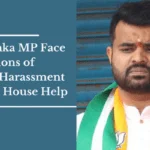Arvinder Singh Lovely, the head of Delhi’s Congress, has stepped down due to constant meddling from Deepak Babaria, the party’s general secretary. He expressed feeling restricted and incapable of leading the Delhi Congress further in a letter to Mallikarjun Kharge, the Congress chief. Lovely highlighted how many party members disagreed with Babaria’s management but felt pressured to remove dissenters.
He also mentioned the Delhi Congress’s objection to aligning with AAP, a party known for baseless corruption accusations against Congress. Despite his disagreement, Lovely complied with the party’s decision, even visiting Arvind Kejriwal’s home when he was arrested.
Arvinder Singh Lovely Resigns
Before the Lok Sabha elections, the Congress party faced a significant setback in Delhi. Arvinder Singh Lovely stepped down from his role as Delhi Congress President, citing the alliance with the Aam Aadmi Party (AAP) as the reason. He believes that forming an alliance with AAP, a party that was initially critical of Congress, is contradictory.
Lovely emphasized that the Delhi Congress unit opposed aligning with AAP, given its history of making false corruption accusations against Congress. Despite this opposition, the party proceeded with the decision to form an alliance with AAP.
Also Read: Arvind Kejriwal Given Insulin in Tihar Jail After Rising Sugar Levels
Arvinder Singh Lovely’s Appointment Struggles
In August 2023, Arvinder Singh Lovely became the Delhi Congress President. In a letter to Mallikarjun Kharge, the national president of Congress, Lovely expressed his frustration. He mentioned that decisions made by senior leaders of Delhi Congress were consistently blocked by the AICC general secretary in charge of Delhi.
Since taking office, Lovely hasn’t been allowed to appoint senior positions within DPCC. Even the request to appoint a Media Chief was denied. Presently, over 150 blocks in Delhi lack block presidents due to interference from the AICC general secretary.
Delhi Congress Unit Stands Firm Against AAP Alliance
The person mentioned that despite the Aam Aadmi Party accusing Congress of corruption, they still formed an alliance with them (India Bloc). He explained that the Delhi Congress unit opposed this alliance because the AAP had made false corruption allegations against them, and many of the AAP’s ministers were facing corruption charges themselves.
Despite these concerns, the party chose to align with AAP in Delhi. He emphasized that he respected the party’s decision and ensured that the entire state unit followed it. Even though he disagreed with the decision, he complied with instructions and went to Kejriwal’s residence with Subhash Chopra and Sandeep Dixit on the night of Kejriwal’s arrest.
Why Didn’t the Congress-AAP Alliance Materialize?
The former leader of DPCC shared that in the current general elections, Delhi Congress has been given the chance to compete in three parliamentary seats as part of an alliance. He pointed out comments from Kanhaiya Kumar, the candidate for North-East Delhi, who wrongly praised the Delhi CM and supported the work of the Aam Aadmi Party in education, health, roads, and power.
This upset local party members who didn’t join the alliance to support AAP’s false claims about Delhi’s progress. Instead, it was an agreement to boost the party’s chances of winning. Lovely expressed his inability to protect party workers’ interests and therefore decided to step down from his position.
Also Read: Lok Sabha Election 2024 Phase 2
Arvinder Singh Lovely Resigns FAQs
Q.1. Why did Arvinder Singh Lovely resign as Delhi Congress President?
Ans. Arvinder Singh Lovely resigned due to internal conflicts and objections to aligning with AAP, feeling unable to lead effectively under such circumstances.
Q.2. What were the objections to aligning with AAP?
Ans. The objections stemmed from AAP’s history of baseless corruption accusations against Congress, making an alliance contradictory to Delhi Congress’s interests.
Q.3. How did internal conflicts affect Lovely’s leadership?
Ans. Internal conflicts, particularly with Deepak Babaria, the party’s general secretary, restricted Lovely’s ability to lead as he faced pressure to remove dissenters.
Q.4. What were the implications of the Congress-AAP alliance not happening?
Ans. The alliance not materializing highlighted divisions within the party and its struggles to reconcile differences, impacting its strategy and potential electoral outcomes.
Q.5. What led to Lovely’s decision to step down from his position?
Ans. Lovely’s decision was driven by his inability to protect party workers’ interests amidst internal meddling and disagreement over the AAP alliance, prompting him to resign.







